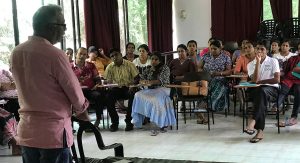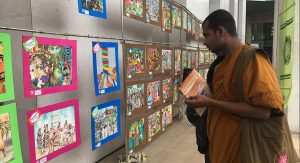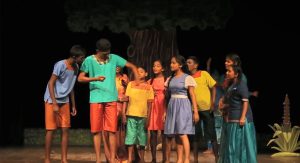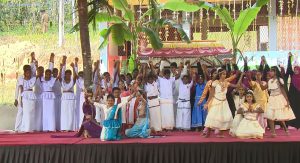
ARTS & CULTURE FOR RECONCILIATION PROGRAMME
Conflict, identity and culture are inextricably linked, culture may not be the cause of conflict, but when boundaries between groups are threatened it informs how this threat is perceived. While much reconciliation literature focuses on post-conflict contexts that are emerging from protracted active violence, reconciliation may also be necessary in contexts where horizontal conflicts resulted in social segregation within communities.
As a result, transformative powers of art and culture is utilized to build an understanding and to encourage dialogue between communities. Celebration of multi-religious festivals at school levels, stage and radio dramas, production of films, cartoon and art competitions, development of a guidebooks on cultural and religious festivals of Sri Lanka are few strategies used to achieving this task.
Understanding the importance of a multidisciplinary approach Art and culture form part of a broader peace and reconciliation strategy alongside traditional peace building techniques, transitional justice practices, psycho-social interventions and human rights methods adopted by ONUR.
With the pandemic situation having a direct effect on conducting programmes at the ground level the Art and Culture Team at ONUR has developed innovative methods to continue this national need. Using mass media as communication methods several discussions were conducted with the input of our expert resource persons targeting following religious festivals.




